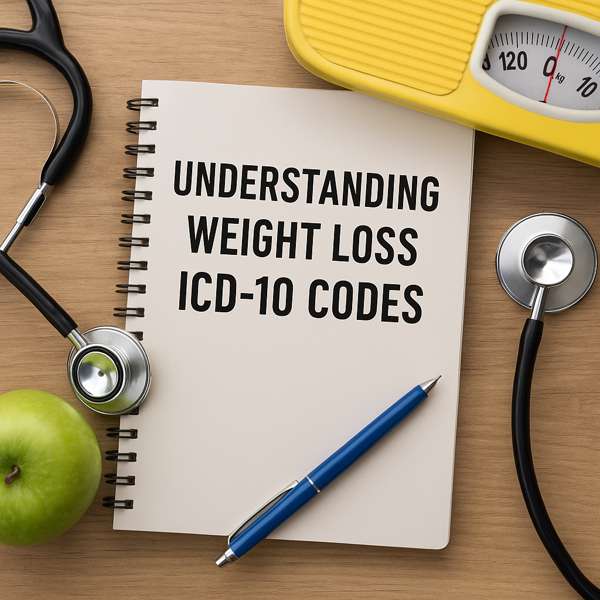ICD-10 Medical Codes for Weight Loss
ICD-10 Medical Codes for Weight Loss
Blog Article

In the world of healthcare, accurate coding is essential — especially when it comes to documenting weight loss.
In this article, we’ll break down what ICD-10 codes are used for weight loss, how to apply them, and what you should know for accurate recordkeeping.
Understanding ICD-10 for Weight Loss
It’s a standardized system used worldwide for classifying medical conditions and diseases.
Each diagnosis is assigned a unique code, which is used for:
- Submitting claims to health providers
- Organizing medical statistics
- Clinical documentation
Which ICD-10 Codes Apply to Weight Loss?
Choosing the correct code depends on the cause, severity, and context of the weight loss.
Key codes include:
- R63.4 – Abnormal Weight Loss
This code applies when a patient loses a significant amount of weight without trying, often due to illness.
- Used when weight loss is guided by professional support
Often applied in cases involving nutritional intervention or guidance.
- Indicates poor nutrition or unhealthy patterns impacting weight
- Used in contrast to weight loss when monitoring obesity treatment progress
- E43 – Unspecified Severe Protein-Calorie Malnutrition
When to Use R63.4 for Weight Loss
R63.4 is the most commonly used ICD-10 code for weight loss, but it must be applied correctly.
- The patient reports significant, unintentional weight loss
- A known condition doesn’t fully explain the weight change
- Additional testing is required to rule out causes
Tips for Correct ICD-10 Weight Loss Usage
To avoid claim denials or coding errors:
- Always specify if weight loss is intentional or not
- Document related symptoms or conditions
- Use supplemental Z-codes for counseling or screenings
- Avoid using obesity and weight loss codes together unless clinically justified
ICD-10 for Weight Management Programs
If you’re coding for a structured weight loss program or health coaching, consider using these Z-codes:
- For nutrition-based support
- Can apply to coaching or fitness counseling
- Used in early evaluation settings
These codes can support insurance claims for wellness, check here prevention, and obesity treatment plans.
Final Thoughts on Weight Loss ICD-10 Codes
Whether you’re coding for unintentional weight loss or part of a managed care plan, accuracy matters.
To summarize:
- Most common diagnosis for unknown causes
- Z-codes = Counseling, prevention, and health maintenance
- E-codes = Nutritional or medical malnutrition
When in doubt, document fully and consult with a certified coding professional. Report this page